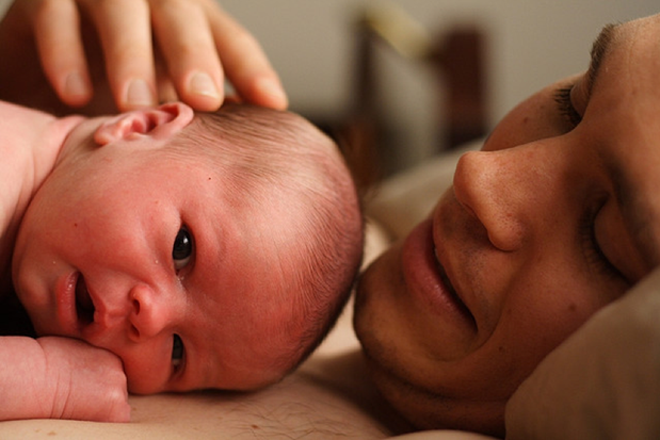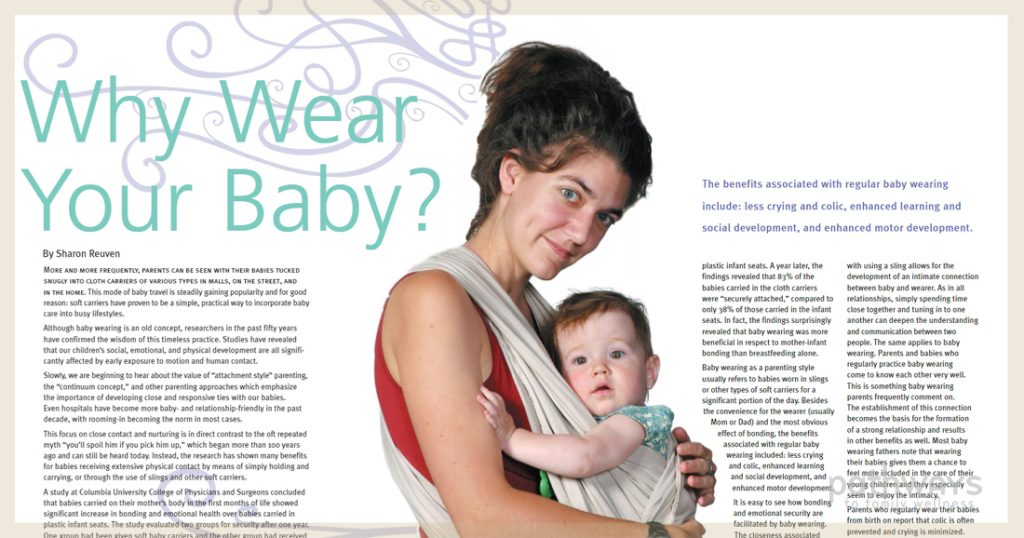Father infant bonding is significant because it promotes attachment in the crucial period of infancy, supporting the baby’s brain development and laying the foundation for their long-term mental health and well-being. Without a strong initial bond, children are less likely to grow up to become happy, independent, and resilient adults.
Numerous studies have shown that active involvement of fathers with their infants leads to secure, confident, and independent babies who are more interested in exploring the world around them. Father infant bonding also helps in shaping the child’s overall development, creating a nurturing relationship, and providing a foundation for learning and good relationships as they grow.
Successful bonding during the postpartum period has been shown to have additional benefits for the baby, including reduced cognitive delay and promoting weight gain in preterm infants.
Table of Contents
ToggleImportance Of Father-infant Bonding
When it comes to bonding with newborns, much attention is often placed on the mother-infant relationship. However, the significance of father-infant bonding cannot be overstated. The role of fathers in the early development of their children is crucial and contributes to the overall well-being and healthy development of infants. Understanding the importance of father-infant bonding is essential for fostering a nurturing and supportive environment for the child’s growth.
Crucial Brain Development
Interactions between fathers and infants play a vital role in the cognitive development of the child. Engaging in activities such as playing, talking, and reading with the infant stimulates their brain development. Research suggests that the presence of the father can enhance the child’s cognitive abilities, contributing to their overall intellectual growth.
Long-term Mental Health
The emotional connection established through father-infant bonding has a profound impact on the child’s long-term mental health. Children who have supportive and nurturing relationships with their fathers are more likely to develop greater emotional resilience. This, in turn, can positively influence their mental well-being as they grow older, reducing the risk of emotional and behavioral problems later in life.
Promoting Attachment
Father-infant bonding plays a pivotal role in promoting secure attachment. The bond formed between a father and their infant creates a sense of security and trust for the child, shaping their ability to form healthy relationships in the future. This early attachment lays the foundation for the child’s social and emotional development, impacting their relationships and interactions throughout their lives.

Credit: nuroobaby.com
Benefits Of Father Involvement
Father involvement in infant bonding is significant for the development of a strong and nurturing relationship. Research shows that babies who have a good initial bond with their fathers are more likely to grow up to become happy, independent, and resilient adults.
The importance of early bonding between fathers and infants lays the foundation for long-term mental health and overall well-being.
There are numerous benefits of having fathers actively involved in the bonding process with their infants. This not only strengthens the father-infant relationship but also contributes to the overall growth and development of the child. Let’s take a closer look at some of the key benefits:
Security And Confidence
When fathers actively engage with their infants, it helps create a sense of security and confidence in the child. The consistent presence and responsive care provided by fathers promotes a secure attachment, which forms the foundation for healthy emotional development. Children who have a strong bond with their fathers are more likely to feel secure in exploring the world and are better equipped to handle stress and adversity.
Interest In Exploration
Father-infant bonding plays a crucial role in fostering a child’s curiosity and interest in exploration. Fathers tend to engage in more physically stimulating play, encouraging their infants to explore their surroundings and develop their motor skills. This type of interaction promotes cognitive development and a sense of independence in children, as they feel encouraged to explore and learn from their environment.
Independence
Active father involvement during the early years of a child’s life helps promote independence. Fathers provide a different parenting style compared to mothers, which gives children a broader range of experiences and perspectives. This diversity in caregiving helps children develop their sense of self and individuality, as they learn to navigate relationships and adapt to different social contexts.
Impact Of Father-baby Bonding
Bonding between father and baby holds significant importance as it fosters the child’s cognitive and emotional development. Research shows that when fathers are actively involved with their infants, it promotes security, confidence, independence, and curiosity in exploring the world around them.
The nurturing relationship and responsive care provided by fathers lay the foundation for a child’s learning and healthy relationships as they grow.
Immediate Postpartum Benefits
Fathers bonding immediately with newborns enhances emotional connection from the start.
Weight Gain In Preterm Infants
Father-infant bonding contributes to better weight gain in preterm infants promoting healthier growth.
Improved Breastfeeding Rates
Strong bond between father and baby supports improved breastfeeding rates, aiding in baby‘s nutrition.

Credit: br.ifunny.co
Father’s Role During Pregnancy
The role of a father during pregnancy is paramount in shaping the bond between the father and the infant. Fathers play a crucial role in supporting and nurturing the mother, ensuring a healthy and positive environment for the baby’s development.
Importance Of Bonding
Fathers bonding with their infants is essential for establishing a strong emotional connection that contributes to the overall well-being of the child. This bond fosters trust and security, laying the foundation for healthy relationships in the future.
Supporting Cognitive Development
Through active engagement and interaction, fathers stimulate their infant’s cognitive development. This involvement promotes curiosity, learning, and the development of crucial cognitive skills essential for later stages of life.
Promoting Healthy Birth Weight
Studies have shown that fathers who are actively involved during pregnancy contribute to healthier birth weights for infants. The emotional and physical support provided by fathers during pregnancy positively impacts the baby’s development, leading to better health outcomes.
“`
Please make sure to incorporate this HTML content into your WordPress blog post while ensuring it meets all the provided requirements.
Long-term Effects Of Father-child Bonding
Father-infant bonding with the father is crucial for the child’s long-term development. It helps in building confidence, independence, and resilience in children as they grow into adulthood. Research has shown that active involvement of fathers during infancy leads to more secure and curious children, setting the stage for healthy development.
Stability Over Time
Father-child bonding lays a foundation for long-term stability.
Distinct Emotional Connection
Emotional bond between father and child is unique and enduring.
Potential Impact On Child Development
Father’s involvement contributes to positive child development outcomes.
The long-term effects of father-child bonding are profound, influencing various aspects of a child’s life.
- Emotional Security: Children experience higher emotional security with a strong bond.
- Academic Success: Positive father-child relationships correlate with improved academic performance.
- Behavioral Development: Fathers play a vital role in shaping their child’s behavioral development.
In essence, the quality of the father-child bond has a lasting impact on multiple areas of a child’s life, setting the stage for healthy development and emotional well-being in the long run.
Supporting Studies And Research
Father-infant bonding is a topic of great relevance today, propelled by the mounting evidence and research underscoring its significance. Numerous scientific studies have ascertained the positive impact of father-infant bonding on the emotional and cognitive development of children. Understanding these findings is crucial in emphasizing the necessity of paternal involvement in the early years of a child’s life.
Scientific Evidence And Findings
Scientific research has revealed a myriad of benefits associated with father-infant bonding. Studies have consistently shown that infants who establish a strong bond with their fathers exhibit higher levels of emotional resilience and cognitive development. These findings suggest that active paternal engagement during infancy plays a pivotal role in fostering a child’s overall well-being.
Understanding Emotional Quality
The emotional quality of the father-infant bond is a critical factor influencing the child’s psychological development. Research indicates that when fathers actively participate in nurturing and caregiving activities, it leads to enhanced emotional security in the infant, contributing to the formation of secure attachment patterns. This emotional security in early infancy lays a firm foundation for the child’s future interpersonal relationships and emotional regulation.
Impact Of Paternal Leave
Studies have underscored the importance of paternal leave in facilitating and strengthening the father-infant bond. Research has shown that fathers who take paternity leave experience greater bonding with their infants, leading to enduring positive effects on the child’s long-term cognitive and emotional development. The impact of paternal leave on father-infant bonding highlights the critical role of policies that support and encourage paternal involvement during the infant’s formative years.
Parent-infant Bonding
Bonding between a father and an infant is an essential aspect of parenting that significantly impacts the child’s overall development and well-being. Fathers play a crucial role in shaping the emotional, social, and cognitive development of their infants.
Shaping Child Development
The bond between a father and an infant has a profound influence on the child’s emotional intelligence and social skills. Fathers have a unique way of interacting with their infants, which contributes to the child’s overall emotional stability and resilience.
Nurturing Relationships
Through interactions and caregiving, fathers form a strong bond with their infants, fostering a sense of security and trust. This nurturing relationship between the father and the infant creates a supportive environment for optimal growth and development.
Foundation For Learning
The bond between a father and an infant lays the foundation for future learning and exploration. Fathers play a fundamental role in encouraging their infants to explore the world, fostering curiosity, and a thirst for knowledge that shapes the child’s future learning experiences.
Relevance For Future Generations
Establishing a strong father-infant bond is crucial for future generations. This early attachment fosters secure, confident, and independent individuals who are better equipped to navigate the world. Fathers play a vital role in shaping the foundation for their child’s long-term well-being and mental health.
Implications For Society
Father-infant bonding is not just important for the immediate family, but it also has broader implications for society as a whole. When fathers actively participate in bonding with their infants, it contributes to creating a more balanced and equal society.
By fostering a strong bond with their newborns, fathers challenge traditional gender roles and norms, promoting the idea that caregiving is not solely the mother’s responsibility. This challenges outdated stereotypes and contributes to breaking the cycle of gender inequality that has persisted for generations.
In addition, when fathers are actively involved in bonding with their infants, it positively impacts their relationship with the mother. Shared caregiving responsibilities strengthen the bond between parents, leading to healthier and more harmonious family dynamics. This, in turn, creates a nurturing environment for the child to grow and thrive.
Parenting Paradigms
The significance of father-infant bonding extends beyond the immediate generation. It influences the parenting paradigms that future generations adopt. When fathers engage in active bonding during their infants’ early years, they establish a positive model of parenthood.
Children who witness their fathers actively involved in nurturing and caregiving are more likely to adopt these behaviors themselves as they grow up and become parents. This shift in parenting paradigms contributes to creating a society where both mothers and fathers share the responsibilities of raising a child.
Moreover, active father-infant bonding challenges the notion that fathers are mere breadwinners. It emphasizes the importance of emotional connection, empathy, and active participation in the child’s life. These values, when passed on to future generations, contribute to creating a society that values and prioritizes the well-being and development of children.
Cultivating Healthy Relationships
When fathers actively engage in bonding with their infants, it sets the foundation for cultivating healthy relationships throughout their lives. The early years of a child’s life are critical for developing a secure attachment with both parents.
A strong father-infant bond provides the child with a sense of security, love, and support. This, in turn, fosters a healthy self-esteem and resilience, enabling them to form positive relationships with others as they grow older.
Active father involvement also contributes to the holistic development of the child. It introduces different perspectives, experiences, and approaches to parenting, offering a well-rounded upbringing. This diversity in parenting styles and influences broadens the child’s understanding of relationships and nurtures their ability to adapt and empathize with others.
In summary, father-infant bonding is not only significant for the immediate family but also has far-reaching implications for future generations. It challenges societal norms, shapes parenting paradigms, and cultivates healthy relationships. By acknowledging the importance of fathers in the early years of their child’s life, we can create a more balanced and nurturing society for generations to come.

Credit: www.amazon.com
Frequently Asked Questions Of Why Father Infant Bonding Significant
Why Is Father Bonding With Newborn Important?
Bonding with a newborn is important for fathers as it promotes brain development, attachment, and sets the foundation for long-term mental health. It also helps babies become secure, confident, and independent individuals. The quality time spent with the father during the infancy stage has a significant impact on the baby’s future well-being.
What Is The Importance Of Father Infant Attachment?
Father-infant attachment is crucial for the baby’s secure development and promotes confidence, independence, and exploration. Research shows that infants thrive when fathers are actively involved in their care. This bond sets the groundwork for long-term mental health and independence. Bonding with a newborn is particularly important for brain development during infancy.
Why Is Parent Infant Bonding Important?
Bonding between parent and infant is important because it shapes the child’s development and lays the foundation for learning and good relationships. It promotes attachment and helps babies grow up to become happy, independent, and resilient adults. Supporting this bond during infancy is crucial for the long-term mental health and well-being of the child.
How Important It Is For A Father To Bond With His Unborn Baby?
It is important for a father to bond with his unborn baby to promote attachment and facilitate brain development for a happy and resilient child. Active involvement fosters confidence and independence, benefiting long-term mental health and wellbeing.
Conclusion
Father-infant bonding sets the foundation for lifelong connections, fostering emotional security and cognitive development. Engaging with your newborn during those crucial early years shapes their future independence and resilience. Planting these seeds of love and guidance from the beginning paves the way for a strong parent-child relationship.

Mother of Two children. I’m a former teacher with a background in child development and a passion for Good parenting. I understand child development and know how to develop activities to help children learn and grow. Spare time, I enjoy spending time with my family, reading, and volunteering in my community. Read More








